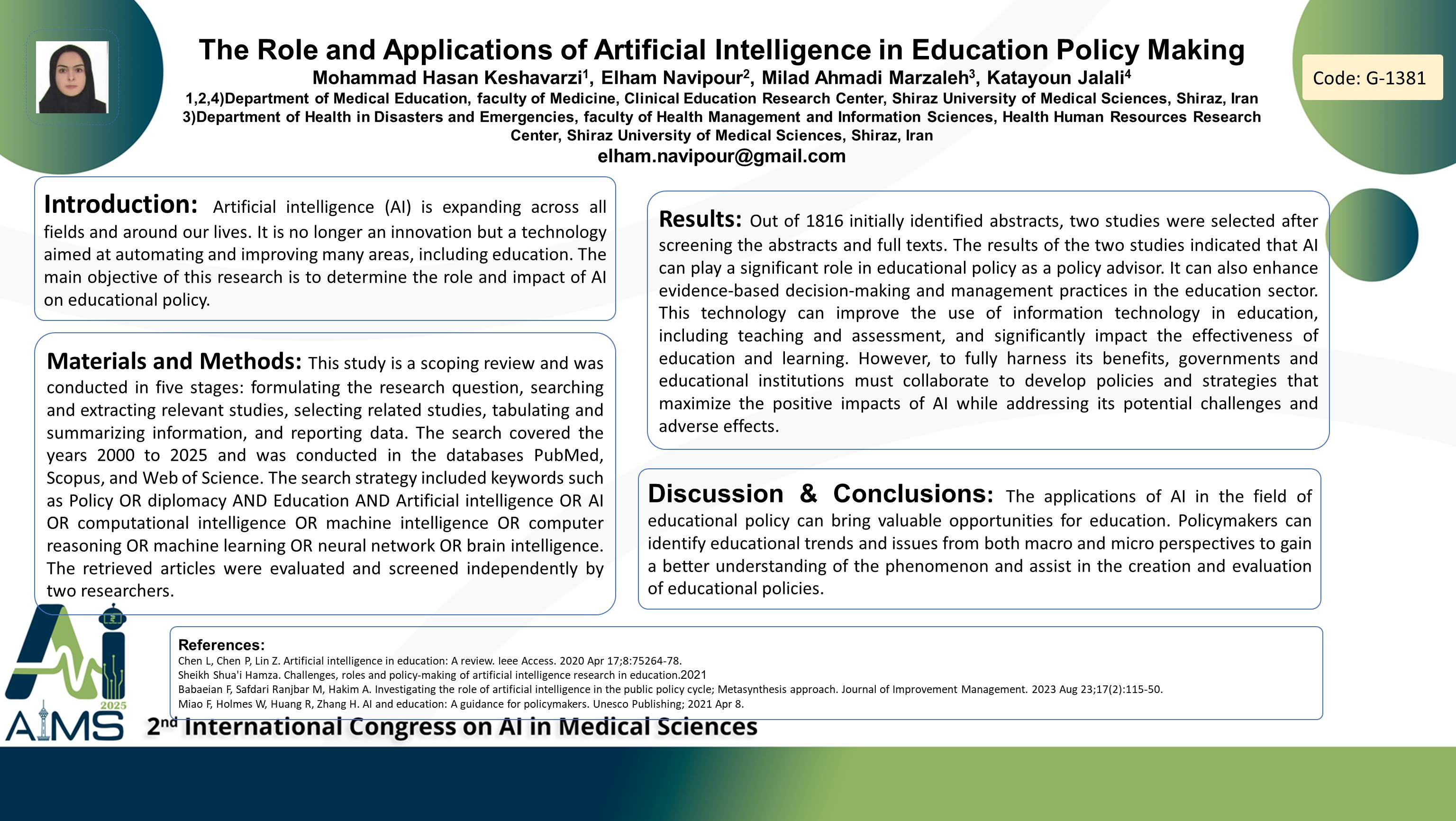The Role and Applications of Artificial Intelligence in Education Policy Making
Code: G-1381
Authors: Mohammad Hasan Keshavarzi, Elham Navipour * ℗, Milad Ahmadi Marzaleh, Katayoun Jalali
Schedule: Not Scheduled!
Tag: Health Policy, Law & Management in AI
Download: Download Poster
Abstract:
Abstract
Background and aims: Artificial intelligence (AI) is expanding across all fields and around our lives. It is no longer an innovation but a technology aimed at automating and improving many areas, including education. The main objective of this research is to determine the role and impact of AI on educational policy. Method: This study is a scoping review and was conducted in five stages: formulating the research question, searching and extracting relevant studies, selecting related studies, tabulating and summarizing information, and reporting data. The search covered the years 2000 to 2025 and was conducted in the databases PubMed, Scopus, and Web of Science. The search strategy included keywords such as Policy OR diplomacy AND Education AND Artificial intelligence OR AI OR computational intelligence OR machine intelligence OR computer reasoning OR machine learning OR neural network OR brain intelligence. The retrieved articles were evaluated and screened independently by two researchers. Results: Out of 1816 initially identified abstracts, two studies were selected after screening the abstracts and full texts. The results of the two studies indicated that AI can play a significant role in educational policy as a policy advisor. It can also enhance evidence-based decision-making and management practices in the education sector. This technology can improve the use of information technology in education, including teaching and assessment, and significantly impact the effectiveness of education and learning. However, to fully harness its benefits, governments and educational institutions must collaborate to develop policies and strategies that maximize the positive impacts of AI while addressing its potential challenges and adverse effects. Conclusion: The applications of AI in the field of educational policy can bring valuable opportunities for education. Policymakers can identify educational trends and issues from both macro and micro perspectives to gain a better understanding of the phenomenon and assist in the creation and evaluation of educational policies.
Keywords
Policy-making, Education, Artificial Intelligence, Application
